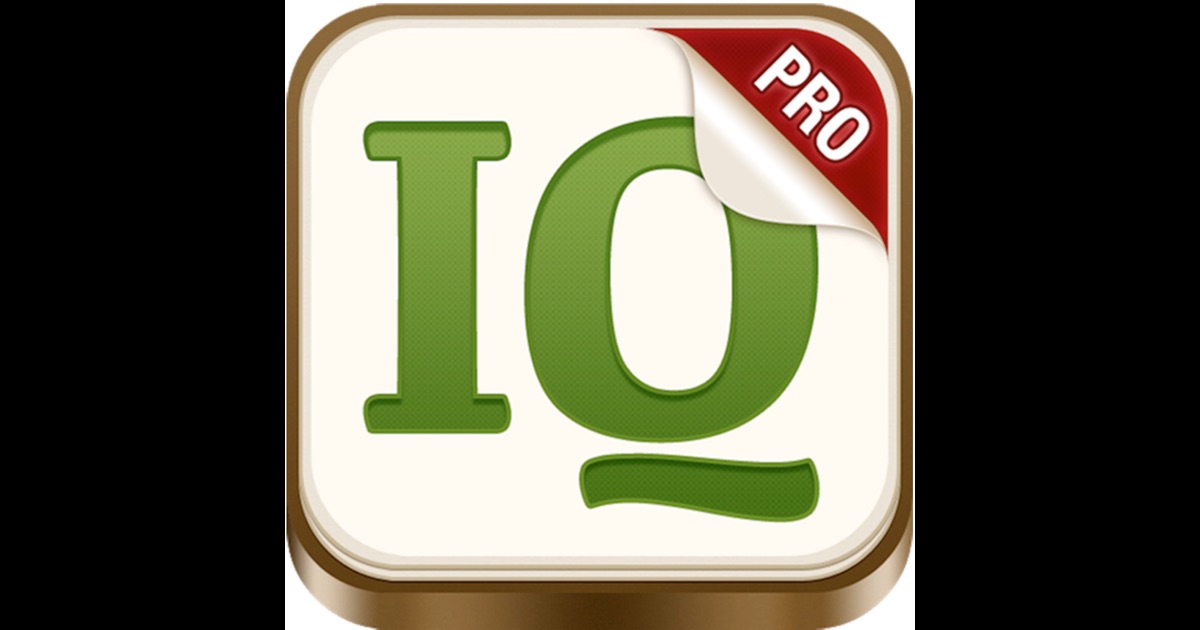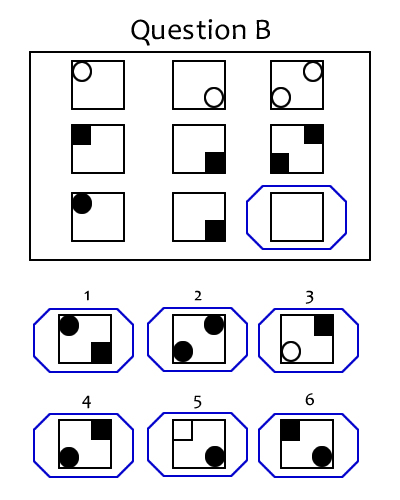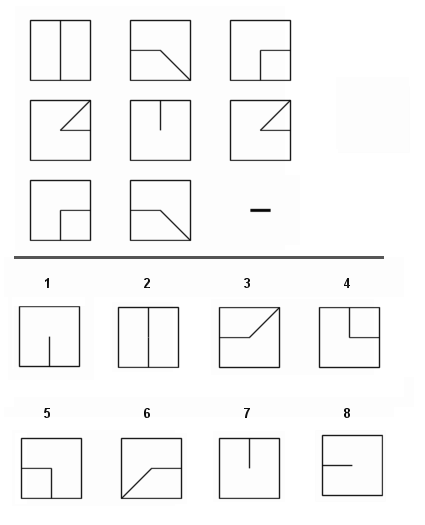The WISC Test (Wechsler Intelligence Scale for Children) is an IQ test administered to children between ages 6 and 16 by school districts and psychologists. The objective of the exam is to understand whether or not a child is gifted, as well as to determine the student’s cognitive strengths and weaknesses. Welcome to the World's Quickest Free IQ Test ®. The test takes 5 minutes or less and is 93-96% accurate for native English speakers. This free IQ test is only appropriate for those 15 years of age. When you complete a free IQ test you will get an estimate of your IQ score or the number of questions you answered correctly. Share your IQ score with your friends. Start the free test. Classical intelligence test. 10 questions, 10 question types. My age is I am from. My educational level is. The average IQ is 100.Have you wondered what your IQ score is? Our original IQ Test will give you a fast, free and accurate iq score.Take our quick free IQ test and find out just how smart you are.
Updated for 2019: Test-Guide’s offerings for free IQ tests online!
“Intelligence Quotient” is the term used to describe a person’s “mental age” as a way of gauging human intelligence. Take Test-Guide.com's free, fast IQ test, or see our reviews of other popular online tests.
Test-Guide's IQ Test
The free IQ test from Test-Guide.com features 30 quick questions, is untimed, and offers instant results.
Our free IQ test presents questions that measure:
- Verbal comprehension
- Logic
- Perceptual reasoning
- Mathematical reasoning
When you take our test, you’ll be able to challenge yourself by way of:
- Anagrams
- Pattern recognition
- Story problems
- Vocabulary
Take our free IQ test today to see how you do!
Other Resources for IQ Tests Online
There are many online intelligence tests available - with varying levels of quality. Here is our review of popular, free tests:
Test-Guide's Review of Free IQ Tests
Site:123test.com
Rating:
Questions: 8 image (culture fair) or 10 classic
Information Collected: 4 Questions (gender, age, country, educational level)
Timed?: No Time to Complete: 3 Minutes
Results: Instant but provides score range only - no other information.
(Click on image to zoom)
Provides Answers to Questions?: No
Score Accuracy: Poor (not enough questions on free test)
Test-Guide's Perspective: 123Test provides two types of tests: Culture Fair and Classical. Unfortunately the free versions of these tests are too short to provide a meaningful score. 123Test also provides longer versions of both tests for $ 8.99.
Site:FunEducation.com
Rating:
Questions: 43
Free Iq Test Age 5
Information Collected: After test, you must enter email, name, age, gender, country, and zip code
Timed?: No Time to Complete:30 Minutes
Results: Instant but only provides partial results. To get full results you must pay $4.97
(Click on image to zoom)
Provides Answers to Questions?: No - you do not know which questions you got right/wrong.
Score Accuracy: Poor (results don't match other certified scores)
Test-Guide's Perspective: Funeducation's intelligence test is very long (43 questions take about 30 minutes). The question quality varies widely. Results page does not provide good information, and it's annoying that you have to provide email and pay $4.97 for full results.
Site:BrainMetrix.com
Free Iq Test Age 16 Free
Rating:

Questions: 20
Information Collected: None
Timed?: No Time to Complete:17 Minutes

Results: Instant but doesn't provide much details.
(Click on image to zoom)
Provides Answers to Questions?: No - you do not know which questions you got right/wrong.
Mensa Iq Test
Score Accuracy: Average - scores seem to match other tests.
Test-Guide's Perspective: Brainmetrix provides a free 20 question intelligence test. The questions are a mix of number series, vocab and image questions. Some of the image questions are poor quality. The site does not request any personal information. The site, however, does not provide you with the answers to the questions.
Site:Free-IQTest.net
Rating:
Questions: 20
Information Collected: Birthdate. Gender
Timed?: No Time to Complete:15 Minutes
Results: Instant, but don't provide any details/perspective.
(Click on image to zoom)
Provides Answers to Questions?: Yes, but one at a time (which is annoying).
Score Accuracy: Average (results seem to match other certified scores)
Test-Guide's Perspective: Free-IQTest.net provides a free test with 20 questions. The test is pretty straightforward, and the questions seem reasonable (although not extremely difficult). The results section does provide answers, but it makes you go through the questions (again) one at a time to see which ones you got right or wrong.
Site:Wechslertest.com
Rating:
Questions: 15
Information Collected: None
Timed?: Yes - 15 minutes (quick quiz) Time to Complete:12 Minutes
Results: Instant, but don't provide any details/perspective.
(Click on image to zoom)
Provides Answers to Questions?: No - you don't know what questions you got right/wrong.
Score Accuracy: Average (results seem to match other certified scores)
Test-Guide's Perspective: WechslerTest.com provides two free tests - a 30 minute full quiz and a 15 minute quick quiz. Both IQ tests are straight forward, with no image questions. The results are provided instanteously, but don't provide any answers to the questions so you won't know which questions you got right/wrong. You are also give an raw score which doesn't let you know how many questions you answered correctly.
About IQ Tests
IQ scores are placed on a scale where 100 is considered “average” intelligence, and each standard deviation is 15 points above or below that. It is thought that about two-thirds of a given population is within one standard deviation of the mean, or between IQ 85 and IQ 115.
Iq Test
There are many different tests used for measuring IQ. No one test is universally accepted as the “official” test, although the Wechsler Adult Intelligence Scale and the Wechsler Intelligence Scale for Children are the most commonly used individual intelligence tests. Some intelligence tests are not based on the Wechsler model. Other IQ tests may base their approach on one of the following formats:

- Stanford–Binet Intelligence Scales
- Woodcock–Johnson Tests of Cognitive Abilities
- Raven's Progressive Matrices
- Cattell Culture Fair III
- Reynolds Intellectual Assessment Scales
- Differential Ability Scales
- Das–Naglieri cognitive assessment system
In addition to the online IQ tests that we reviewed above, there are many free IQ tests you can take online to get an idea of where you may fall on the IQ scale. Some examples include:
Additional free IQ tests are available online that are not representative of any one specific intelligence test. Some examples include:
IQ Test Content Description
As there are many different individual Intelligence Quotient tests available, it is difficult to list a definitive description of test content. The following is based on the Wechsler Adult Intelligence Scale (WAIS), which is the most widely used individual IQ test.
The WAIS-IV (4th Edition) identifies four index scores which represent the major components which make up intelligence:
- Verbal Comprehension Index
- Perceptual Reasoning Index
- Working Memory Index
- Processing Speeds Index
Collectively, these four main index scores are comprised of 15 subtests, 10 of which are considered “core” subtests. They are organized as follows:
Verbal Comprehension Index of IQ Tests
The Verbal Comprehension Index Score is made up of three core subtests and one supplemental. Core subtests are in bold:
- Similarities- This subtest presents two words which represent common concepts or objects, and asks the test taker to describe ways in which they are similar. This is to measure formation of verbal concepts and reasoning.
- Vocabulary- The test taker is asked to name an object based on a picture, and to define words based on an oral or visual representation. This is to measure word knowledge and formation of verbal concepts.
- Information- The test taker is asked to answer questions drawn from a wide range of general topics. This is to measure skills at acquiring, retaining, and retrieving general facts and information.
- Comprehension- The test taker is asked to answer questions based on knowledge of generalized principles as well as social situations. This is to measure the ability to use past experiences to form practical understanding and judgement.
Perceptual Reasoning Index of IQ Tests
The Perceptual Reasoning Index Score is made up of three core subtests and two supplemental. Core subtests are in bold:
- Block Design- Within a specific time limit, the test taker will view a picture and a model, or just a picture, and recreates the design using blocks. This is to measure the test taker’s ability to analyze and synthesize visual stimuli.
- Matrix Reasoning- The test taker will view an incomplete matrix or series, then selects which response option he or she thinks best completes this matrix or matrix series. This is to measure broad visual intelligence, fluid intelligence, spatial and classification ability, understanding of part-whole relationships, perceptual organization, and simultaneous processing.
- Visual Puzzles- Within a specific time limit, the test taker will view a completed puzzle, and select three options which can be used to reconstruct the same puzzle. This is to measure nonverbal reasoning ability, as well as the ability to analyze and synthesize visual stimuli.
- Figure Weights- Within a specific time limit, the test taker will view a scale which has missing weight, and will select the response that would balance the scale. This is to measure analogical and quantitative reasoning.
- Picture Completion- Within a specific time limit, the test taker will be shown a picture or pictures with an important missing part. He or she will choose the answer choice which identifies the part that is missing. This is to measure concentration, visual organization and perception, and recognition of essential visual details of an object.
Working Memory Index of IQ Tests
The Perceptual Reasoning Index Score is made up of two core subtests and one supplemental. Core subtests are in bold:
- Digit Span- The test taker is read aloud a sequence of numerals and recalls them in the same order they were initially read. They might also be asked to recall them in the reverse order, or to provide the numbers in ascending or descending order. This is to measure mental manipulation, working memory, rote memory and learning, encoding, and attention.
- Arithmetic- Within a specific time limit, the test taker will mentally solve a number of arithmetic problems. This is to measure concentration, mental manipulation, short term memory, long term memory, attention, mental alertness, and numerical reasoning ability.
- Letter-Number Sequencing- The test taker is read aloud sequences of numbers and letters and will recall the letters in alphabetical order, and recall numbers in ascending order. This is to measure mental manipulation, sequential processing, concentration, attention, short-term auditory memory, and memory span.
Processing Speed Index of IQ Tests
The Processing Speed Index Score is made up of two core subtests and one supplemental. Core subtests are in bold:
- Coding- The test taker will copy symbols which are paired with numbers within a specific time limit, using a paper key. This is to measure learning ability, processing speed, visual perception, and visual scanning ability. The test taker will complete this subtest using the same paper key as was provided to them.
- Symbol Search- Within a specified time limit, the test taker will scan a search group, and will indicate whether any of the symbols in the target group matches the search group. This is to measure short-term visual memory, processing speed, visual-motor coordination, visual discrimination, cognitive flexibility, and speed of mental operation. The test taker will complete this subtest using a provided response booklet.
- Cancellation- Within a specific time limit, the test taker will scan an arrangement of shapes, marking specific target shapes. This is to measure visual selective attention, processing speed, vigilance, visual-motor skills, and perceptual speed. The test taker will complete this subtest using a provided response booklet.
Test Administration
There is no one way to administer an IQ test, because they are all different. In general, IQ tests are administered one-on-one, with a trained psychologist. Due to the large number of subtests in many IQ tests, these tests can sometimes take a long while and breaks are given to break up the testing day.
Test Fees
Intelligence test fees for in-person IQ tests can vary widely, due to the different kinds of tests and reasons for taking them, such as:
- Employers may test potential candidates for a position
- The military may use intelligence tests to determine new recruit positions
- Schools may administer tests to determine placement in a special education program
- Private schools may use test results to determine admittance
- An individual might simply be curious about his or her IQ, or want to get into an organization like Mensa.
Best Free Iq Test
All of these examples may use different tests, and they could all be paid for by the organization ordering the test or the test taker themselves. In general, IQ tests are usually between $0-$200.
IQ Test Scores
Receipt of scores will depend largely on which test is being taken. In general, accepted IQ ranges are as follows, from the WAIS-IV:
| IQ Score Range | WAIS-IV Classification |
| 130+ | Very Superior |
| 120–129 | Superior |
| 110–119 | High Average |
| 90–109 | Average |
| 80–89 | Low Average |
| 70–79 | Borderline |
| 69 and below | Extremely Low |
An IQ test is a great way to see where you fall on the intelligence quotient scale.
Mensa and Other High IQ Societies
Mensa is the oldest and largest high IQ society. Mensa membership requires an applicant to score at or above the 98th percentile on an approved intelligence test. Mensa is managed locally by each country's local chapter. In the United States, the Mensa chapter accepts test scores from about 200 different standardized tests (all of which require a neutral and qualified testing environment in a traditional environment). The American Mensa group does not accept any online test scores. The American Mensa chapter accepts the following tests:
- Cognitive Abilities Test (CogAT)
- Differential Ability Scales (DAS)
- Differential Ability Scales - Second Edition (DAS-II)
- Naglieri Nonverbal Ability Test (NNAT)
- Naglieri Nonverbal Ability Test 2 & 3 (NNAT2/NNAT3)
- Otis Lennon School Abilities Test (OLSAT)
- Otis-Gamma Test
- Stanford Binet
- Stanford Binet 5
- Woodcock-Johnson Test of Cognitive Abilities
- GMAT
- Henmon-Nelson
- LSAT
- Millers Analogies Test (MAT)
- California Test of Mental Maturity (CTMM)
- Cattell
- Reynolds Intellectual Assessment Scales
Get Started on Your Free IQ Test Online!
Head over to our IQ test page to give yourself a mental workout. Good luck!